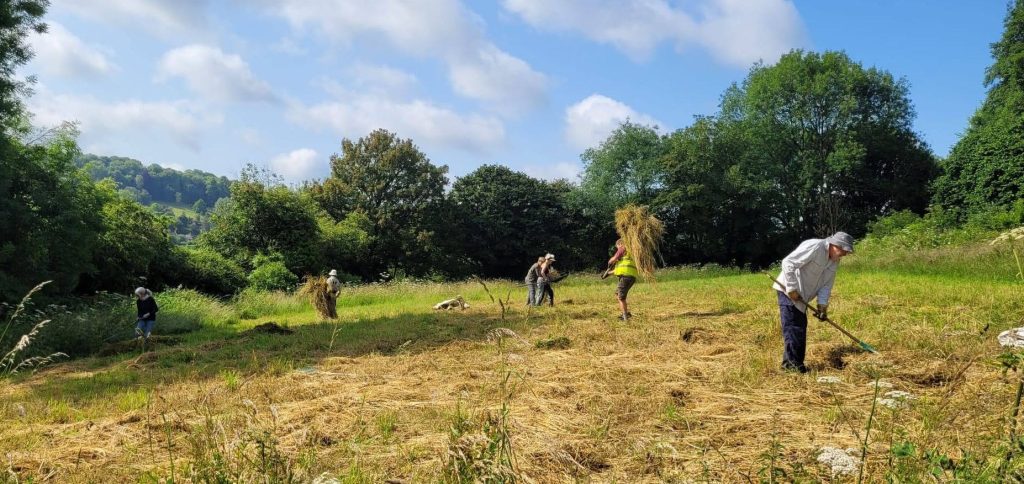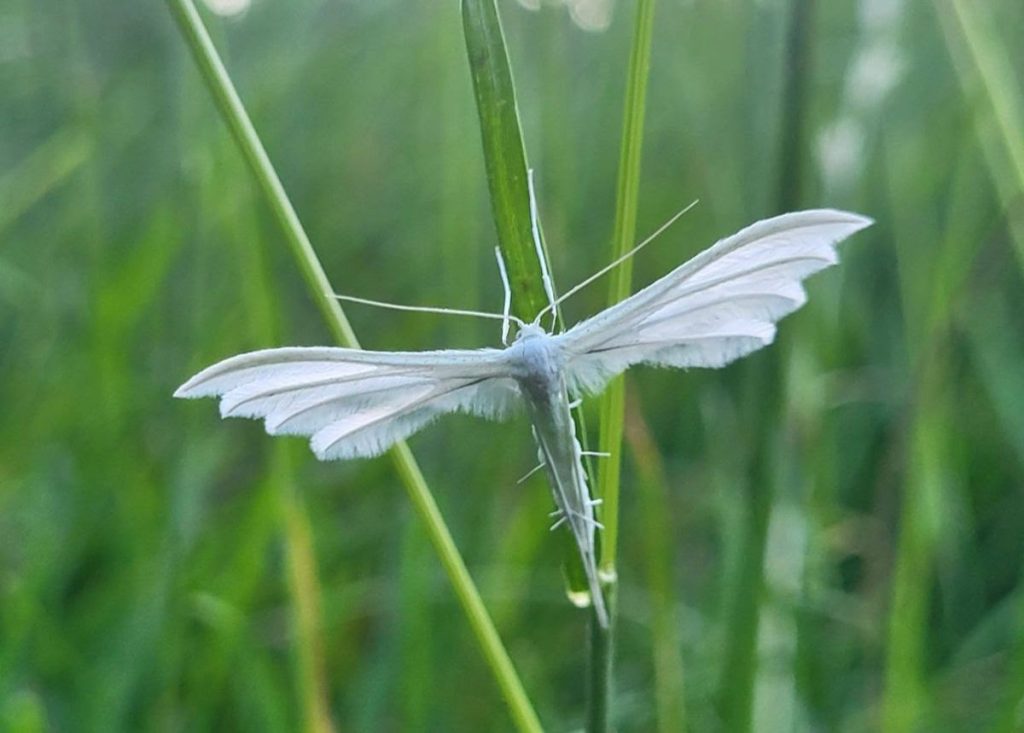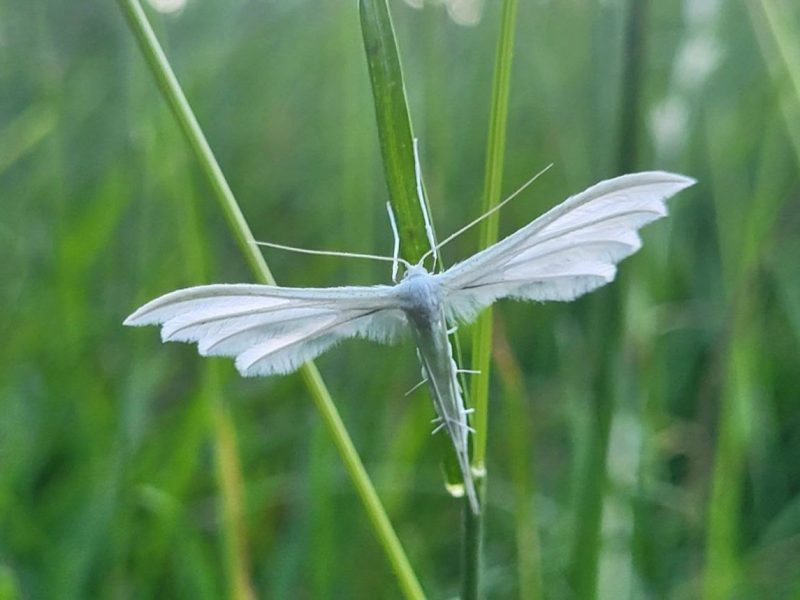By Harry Mottram: This September will mark five years since a band of public spirited individuals took on the project of turning the steep sloping fields above Lyncombe owned by the Council and turning them into a nature reserve come park come green paradise. Previously Lyncombe Hill Fields had been let out as pasture land mainly to livestock and horses and in decades before had been part of a farm and even subject to development speculation. Now five years one they have become a sanctuary from the busy streets of Bath for those who enjoy nature and also the views across the valley.
In their Bulletin 44 the volunteers in the not-for-profit Community Interest Company have reported on the goings on and what to look out for this summer. Peter McSweeney writes: “Hear the growing hum of insects: chirping grasshoppers rub their legs together, called ‘stridulation’, although some sounds can’t be heard by us humans.Butterflies, whose caterpillars feed on grasses, are on the wing right now; meadow browns, small skippers, ringlet and the occasional marbled white.
Brambles are profuse with pink-tinged flowers attracting bees and hoverflies.Bats, including Noctules and Pipistrelles fly most evenings, skirting along treelines hunting for moths and gnats. The tall black knapweed, and even taller hemp-agrimony and buddleia, all support pretty purple flowers attracting butterflies.”

While Anita Breeze writes: “Early in June we welcomed ten children from The Paragon School to Lyncombe Hill Fields for their third annual Queen Elizabeth Day. The day has been created to inculcate the joys of volunteering in different sectors at an early age. Joined by staff and parents together with two volunteers, the children weeded and prepared an area in our small nursery bed ready to plant red campion and cowslip plugs. This was accomplished with much excitement and noise and a great time had by all with job well done! They had a tour of the fields and loved the Tiny Forests. In the afternoon they played a fun learning game; they had descriptions of species to be found in rich meadows pinned to their backs and through questioning, needed to guess what they were. Again, much hilarity ensued and they finished off by standing in a line in accordance to which species was highest in the food chain.”

From the beginning of September 2020, the land has been managed under licence by the Friends of Lyncombe Hill Fields, a newly formed not-for-profit Community Interest Company (FLHF). The two unpaid company directors (Maurice Tennenhaus and Chris Kinchin-Smith) live locally and have been strong advocates of the principle of local management of the Fields since the Council first attempted to find a new tenant in the autumn of 2018. The company is sponsored by the Widcombe Association, Greenway Lane Social Committee, Greenway Lane Area Residents’ Forum, Bear Flat Residents’ Association and the Friends of Alexandra Park, with support also from Bathscape. The company was launched at a public meeting by Zoom on 19th October 2020, with 47 people participating in the meeting and with more than 100 others subsequently registering an interest in FLHF.

Chris Kinchin-Smith adds: “Commencing in 2023 we grew nearly 1,000 saplings. Some of these (slow growing varieties such as oak and beech) are still in the nursery. Others have been planted at the edges of our Inner Field, or in the hedgerows. Then on 25th June 2025 we took delivery of more than 400 new baby saplings, (all grown by More Trees volunteers at their Central Nursery Hub in Twerton), and planted these in our nursery. The varieties comprise Spindle, Gelder Rose, Hazel, Dog Rose and Dog Wood.”
Edited by Ruth Herrlinger the newsletter rounds off with an appeal for donations and also welcomes new volunteers – visit friendsoflyncombehillfields.co.uk


